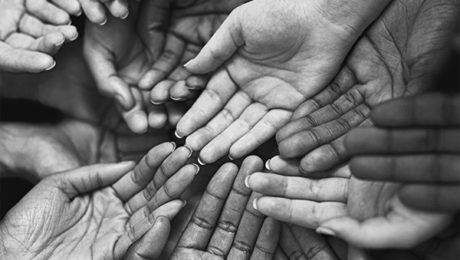Macroeconomic Policies, Care and Gender in the Post-COVID Era: Part I
Faculti, an organization that presents digital media from leading experts and academics outlining their work, recently released a digital presentation by the Care Work and the Economy Principal Investigator Dr. Maria S. Floro entitled “Macroeconomic Policies, Care and Gender in the Post-COVID Era.” This discussion delves into the foundation of project itself, its context, the analytical tools utilized in the research, as well as the external factors that have served as the catalyst for the work being done.
The Care Work and the Economy Project was developed after a group of feminist economists observed that in the effort to reduce gender gaps in economic outcomes, as laid out within the United Nations Sustainable Development Goals, there were aspects of care work that needed to be addressed. The project includes 35 scholars from all around the world that are working to develop innovative analytical tools. The research has been applying and testing these tools in South Korea, a country that quickly industrialized in the 70s and 80s and therefore witnessed a very rapid demographic change in fertility and life expectancy.
The care economy, which is inclusive of caring for those that cannot care for themselves, underpins the production of all economies within society. This begins with the fact that if people stopped having children, which require care, then the economy would come to a halt due to lack of labor force. Generally, care work has a tendency to be undermined through a lack of gender awareness in macroeconomic modeling, which does not address care needs in any adequate manner. This aspect is also neglected within the policy making discourse, with the current economic paradigm failing to take into account the necessity for care work to achieve economic growth.
Economic models that display growth also fail to take into consideration social elements, making the assumptions that, for example, children will be cared for despite the lack of social investment into care. However, with care work there comes social, political and economic significance. The Care Work and the Economy project is working to demonstrate what a care focused macroeconomic model can reveal through the implementation of the analytic tools being developed and implemented through the research.
The absence of the care economy within macroeconomic models is in large part due to it being “invisible” since the work often unpaid. This has led to the neglect of care needs despite unpaid care work providing indispensable services in terms of economic activity and growth. The result is an emerging care crisis that has manifested itself in terms of uncared for elderly, sick and children. Furthermore, the crisis has provoked a form of silent protest against long unpaid work hours performed by women, leading to a decline in marriage and fertility rates. This in turn has resulted in a reproduction crisis.
The Care Work and the Economy project researchers are developing and using innovative analytical tools to bring care to the forefront, along with a deeper understanding of the nature of care work, while illustrating the intersectionality between care provisioning, economic growth and distribution. Although these analytical modeling tools are currently being applied in South Korea, the project believes they can be adopted and implemented into other countries as long as the provision of care is taken into context of those countries. The project research shows that governments have an important role and duty to invest in care provisions as well as comprehensive national care plans. One of the key findings is that it is important to take into account demographic change and climate change along with economic and structural changes taking place in policy making. This is a tall order but necessary to sustain economies and provide a future for next generation.
Link to Part 2 of this blog here.
This blog was authored by Jenn Brown, CWE-GAM Communications Assistant
- Published in COVID 19, Elder Care, Expert Dialogues & Forums, Feminist Economics, Field Work, Gender-Aware Macromodels, South Korea

